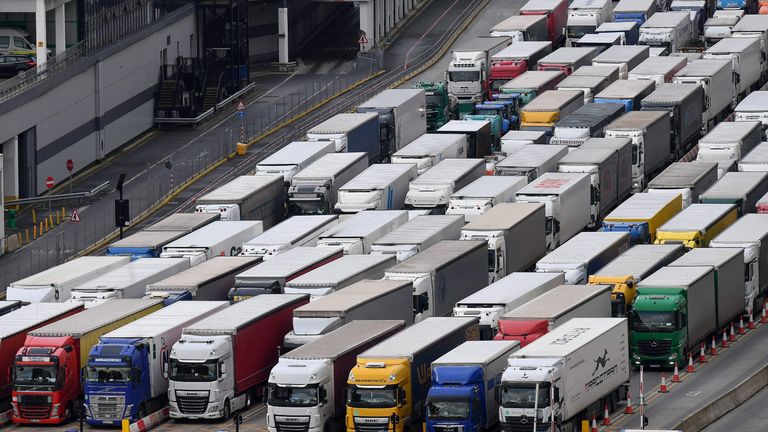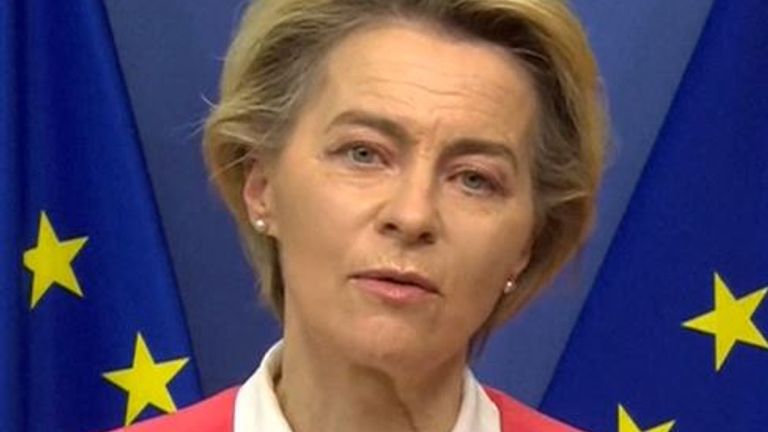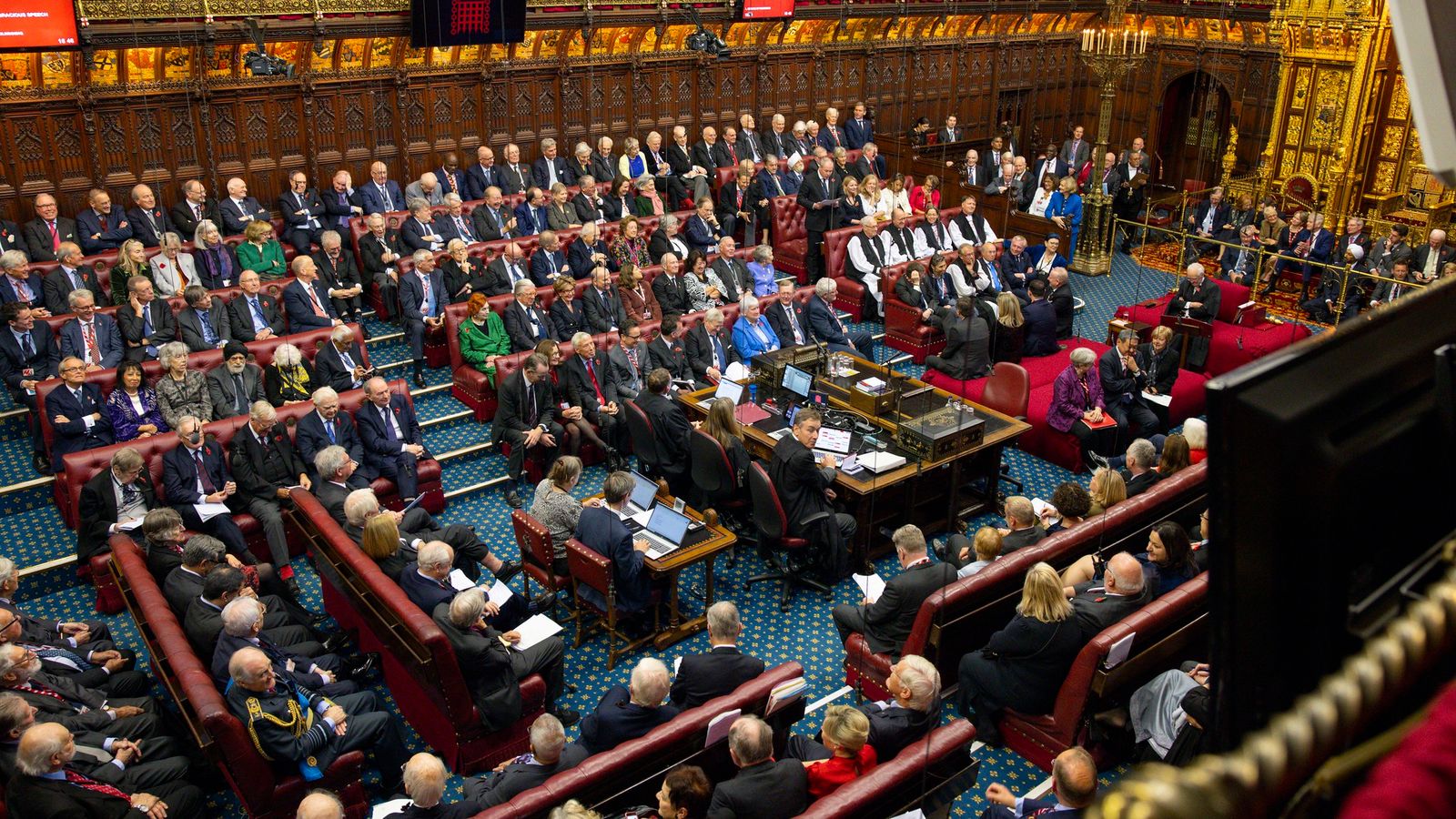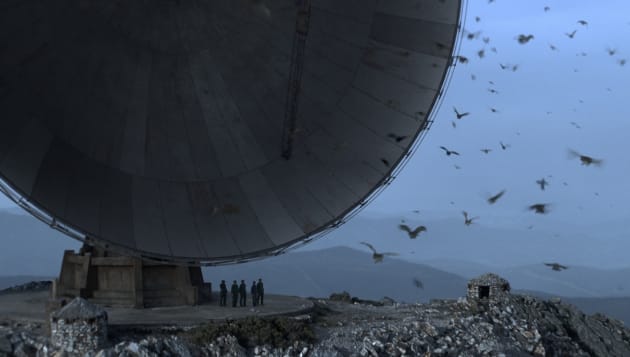Post-Brexit trade talks could go right to the wire after Prime Minister Boris Johnson and EU Commission President Ursula von der Leyen agreed to “go the extra mile” and continue discussions beyond Sunday’s initial deadline.
The two leaders released a brief joint statement on Sunday following what they called a “useful” phone call and refused to set a new deadline for when the talks must wrap up.
Mr Johnson and Ms von der Leyen said they “discussed the major unresolved topics” and that “despite the exhaustion” of many months of talks and multiple missed deadlines, it was “responsible” to keep trying to break the deadlock.
Mr Johnson later said “we’re still very far apart on some key issues… but we’re going to keep talking to see what we can do”.
He continued to warn that a no-deal outcome was still the most likely scenario.
He said the country should get ready for the breakdown of talks, resulting in tariffs under World Trade Organisation (WTO) terms from 1 January – a move that is predicted to cost jobs, cause food prices to rise and wipe £45bn off the economy next year.
“The most likely thing now is, of course, that we have to get ready for WTO terms, Australia terms,” Mr Johnson said.
But the agreement to continue talking does indicate that progress could be possible.
The pair agreed to “keep going for as long as they still think a deal is possible”, a source said.
Speaking to Sky News, the Irish Prime Minister Micheál Martin remained optimistic.
“I do not understate the difficulties and the challenges that face both sets of negotiators,” he said. “But in my view if there’s a will there’s a way, and I think it’s very important that they do everything they can do to get a deal over the line.”
Simon Coveney, Ireland’s foreign minister, said Mr Johnson and Ms von der Leyen’s joint declaration was “a good signal”.
He added it was “time to hold our nerve and allow the negotiators to inch progress forward”, cautioning that a deal is “clearly very difficult, but possible”.
Mr Johnson had summoned cabinet ministers to update them, given both the UK and EU had said Sunday could be the make-or-break moment for talks.
A Labour spokesperson responded by saying the government “promised the British people that they had an oven-ready deal and that they would get Brexit done” and now “needs to deliver on that promise, get us the deal and allow us to move on as a country”.
Foreign Secretary Dominic Raab told Sky News’ Sophy Ridge On Sunday that Mr Johnson and Ms von der Leyen needed to break the “logjam” at a “political level”.
And Spain’s foreign minister Arancha Gonzalez Laya warned no-deal would be “extremely negative” for all parties but “more on the UK side”.
There are now less than three weeks until the end of the transition period – the arrangements that came into force after Brexit happened on 31 January which have seen the UK continue to follow most EU rules.
Businesses have been told to prepare for big changes to come into force from 1 January 2021 but have no idea on exactly what terms firms will be exporting and importing goods.
Tony Danker, head of the Confederation of British Industry, said the news that talks will continue “gives hope” but that “ongoing delays are frustrating and cost businesses”.
“Government must move with even more determination to avoid the looming cliff edge of 1 January,” he added.
Analysis from London: How significant is leaders’ latest statement?
By Sam Coates, deputy political editor
The mere fact there is a joint statement is extremely important.
It suggests that they were able to hammer out a form of words, they were able to do a deal on what they should say immediately after that phone call.
Which is not something that could be said after Wednesday’s dinner for instance, when the UK gave a unilateral readout of what went on, or indeed when the UK put out a statement last night.
This would seem to point to optimism – and it’s significant they don’t seem to go into the specifics.
I think the evolution that we’re back to joint statements, that the tone is much more positive and that the cabinet have now been briefed are all signs of positivity.
We’re not out of the woods, clearly there is a long way to go.
But we are a world away from where we were even just at 9 o’clock last night.
Analysis from Brussels: Another no-deal deadline avoided
By Michelle Clifford, Europe correspondent
Ursula von der Leyen was the first to speak after that phone call but she gave nothing away in terms of what had shifted.
What took the Commission president from saying no-deal looked most likely to “it’s worth going the extra mile”?
Some optimism had filtered out overnight after another lengthy day of talks as negotiators drilled down on how to solve the problem of protecting the single market whilst giving the UK the right to set its own rules.
You might call it the fairness versus sovereignty dilemma.
Something must have shifted on a political level to provide the momentum to carry on talking but neither side was openly talking about what.
When Boris Johnson spoke, he once again offered to visit European capitals to try a get a deal done. A word with Macron? A chat with Merkel? The EU has already said no to that.
But the talking will go on in Brussels.
There’s no certainty a deal will come at the end of it of it all. But another, yet another, deadline has passed with no-deal avoided.









